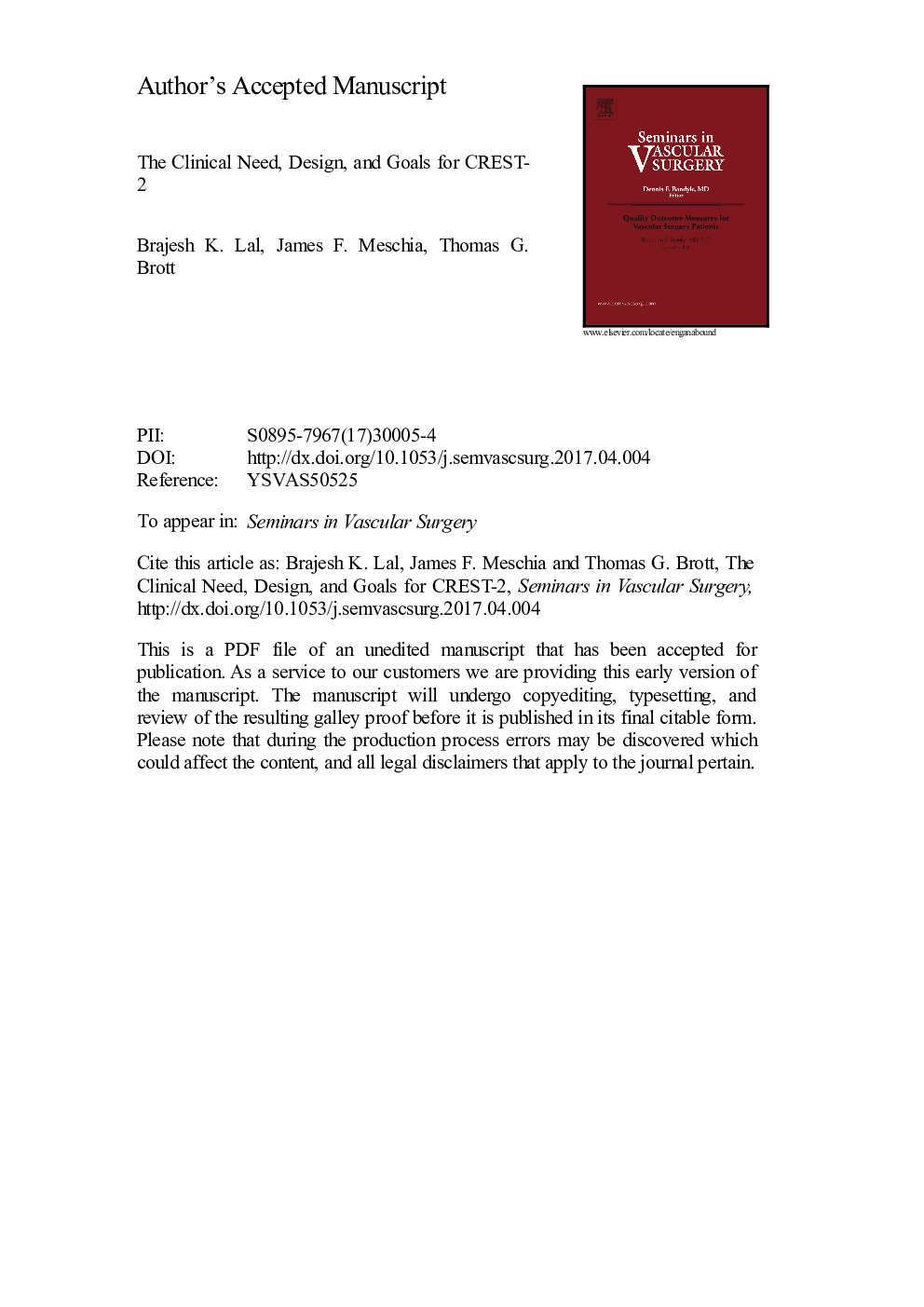| Article ID | Journal | Published Year | Pages | File Type |
|---|---|---|---|---|
| 5621720 | Seminars in Vascular Surgery | 2017 | 19 Pages |
Abstract
Prior clinical trials produced evidence-based treatment recommendations for patients with asymptomatic carotid stenosis that may not be appropriate for clinical decision-making today. High-quality patient outcomes data to allow informed decision making regarding the optimal management of high-grade asymptomatic internal carotid artery stenosis is lacking. The results of the Asymptomatic Carotid Atherosclerosis Study were published in 1995 based on a randomized patient enrollment in the 1990s. Outcomes after endarterectomy, stenting, and medical treatment for these patients have all improved in the subsequent 2 decades. Therefore, the time has come to test whether contemporary intensive medical therapy is an acceptable alternative to contemporary endarterectomy or stenting and is the rationale for the Carotid Revascularization and Medical Management for Asymptomatic Carotid Stenosis (CREST-2) trial. This National Institute of Neurological Disorders and Strokeâsponsored prospective, multicenter clinical trial has the investigators, study teams, asymptomatic patients, and robust study design needed to provide these answers. Two randomized clinical trials are planned: carotid revascularization and intensive medical management versus medical management alone in patients with asymptomatic high-grade carotid stenosis randomize in a 1:1 ratio; the other trial will randomize patients in a 1:1 ratio to carotid stenting with embolic protection versus no stenting. ClinicalTrials.gov Identifier: NCT02089217.
Related Topics
Health Sciences
Medicine and Dentistry
Cardiology and Cardiovascular Medicine
Authors
Brajesh K. MD, James F. MD, Thomas G. MD,
